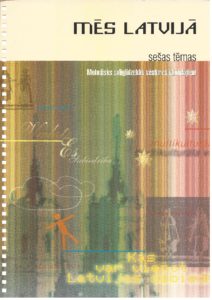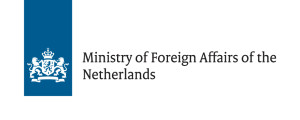This project aims to intensify the mutual integration of the population of Latvia, especially with regards to the Russian speaking group. The approach of this project runs on two parallel tracks. First to start an organised and guided dialogue between journalists, politicians, academics and teachers about the topic, and second to develop educational material for history and civic education, to train teachers how to use it and to provide it to as many schools and teachers as possible. The outcomes of the dialogue will be implemented in the educational material and the material will be assessed and discussed in the dialogue. The result will be an intensified public discussion and public awareness of the problem of integration and a balanced high quality approach for education which will be actually used in schools.
Project Aims
[su_list icon=”icon: caret-right”]
- To debate by using arguments instead of emotions
- To create mutual understanding between students from different origin
- To develop teachers’ and students’ understanding of perceptions, stereotypes and different points of view
- To develop teachers’ and students’ understanding and acceptation of different interpretations in history
- To develop teachers’ and students’ understanding and respect for cultural, political and ethnical differences
- To raise interest and appreciation for people from other groups in society
- To develop educational material for history education on the topic of integration of society which meets the demands of society as a whole.
- To train teachers and teacher trainers how to deal with sensitive and controversial issues in their classrooms.
- To train teachers and teacher trainers how to deal with national identity in a multi-cultural society in a tolerant but responsible way.
- To create a wide group of people able and willing to continue the process of integration after the project
- To create a good example of integration, cooperation and common thinking about a common future
- To publish results and outcomes of the debates and developments of the project in a way accessible to a wider audience via education, publications, media and internet.
Results
[su_list icon=”icon: caret-right”]
Educational material on the Integration of Society
125 pages, 2000 copies. Innovative and ready to use, with pedagogical and didactical recommendations.
Available online in Latvian and Russian

We in Latvia
Teacher training
- 100 history teachers and teacher trainers trained in different parts of the countries.
- Materials and ideas of the project used by initial and in-service teacher training institutes.
- Every year new teacher are trained using ideas and materials of the project.
- Each school year more than 10.000 pupils will be educated with help of the materials and ideas of the project. This number will increase as more teachers will be trained every year.
- Example of good cooperation and working for the future between Latvians and Russians.
- Public debate about the Integration of Society.
- Media, politicians, officials, teachers and academics involved.
- Increased public and political interest and attention for the topic.
- Improved circumstances and support to work on solutions to the problem.
- Strengthen the history educators network: A strong and active network of history educators in Latvia, uniting Latvians and Russian in a single organisation. Organised history educators able and willing to innovate. Critical and constructive approach towards the role of history and civic education in society. Continuity and strengthening of the international relations of the Latvian History Teachers Association in the EuroClio network.
Supported by

MATRA Programme
Project Managers
Joke van der Leeuw-Roord, EuroClio Executive Director
Jonathan Even-Zohar, EuroClio Project Manager
Contributors
Partners
- History Teachers Association of Latvia
- Ministry of Education, Latvia
- Naturalisation Board, Latvia
- Riga University, History Department, Latvia
- Occupation Museum, Latvia
- History Teachers Association EAS, Estonia
- The Textbook Research and Information Centre of the Baltic States, Lithuania
- Anne Frank Foundation, Netherlands
- High Commisssioner for Minorities, OSCE
Coordinators: Aija Klavina & Dzintra Liepina
Authors: Danute Dura, Elena Ryazantseva, Jelena Smolina, Martins Mitenbergs
Experts: Arijs Orlovskis, Elvira Vilume, Ilze Shenberga, Jelena Matjakubova, Valdis Klisans, Valts Sarma
